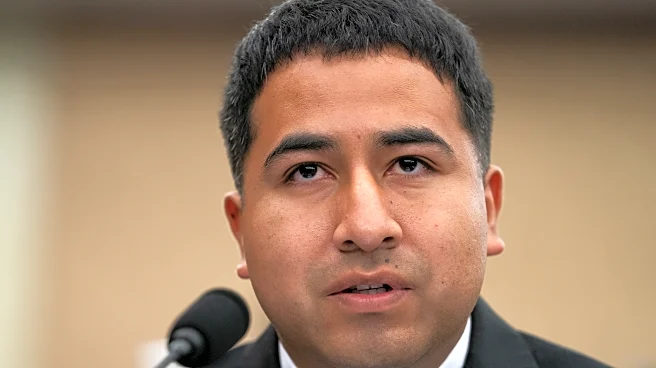What's Happening?
Corsera Health has announced its launch with a mission to extend healthspan by predicting and preventing cardiovascular disease. Co-founded by John Maraganore, Ph.D., and Clive Meanwell, M.D., the company aims to disrupt the current marketplace by introducing a preventive RNAi medicine program expected to enter the clinic by the end of 2025. This initiative is supported by a proprietary AI-enabled tool, Klotho Health, designed to predict lifetime risk of cardiovascular disease and guide interventions. Corsera Health has raised over $50 million from founders and insiders to support its mission.
Why It's Important?
Cardiovascular disease remains the leading cause of death worldwide, claiming approximately 21 million lives annually. In the U.S., over 130 million people are affected by the condition. Corsera Health's approach to early intervention could significantly reduce morbidity and mortality rates by preventing cumulative cardiovascular damage. The company's focus on RNAi therapeutics and AI-driven prediction tools represents a potential shift in how cardiovascular health is managed, offering a proactive rather than reactive approach to treatment.
What's Next?
Corsera Health plans to advance its preventive RNAi medicine into clinical trials by the end of 2025. The medicine targets PCSK9 and angiotensinogen to lower LDL cholesterol and blood pressure, respectively. The company aims to make this treatment accessible through once-annual administration, potentially setting a new standard for cardiovascular health management. As the program progresses, stakeholders in healthcare and pharmaceutical industries will likely monitor its impact on treatment paradigms and healthcare costs.
Beyond the Headlines
The development of Corsera Health's AI-enabled tool and RNAi medicine could have broader implications for personalized medicine and preventive healthcare. By focusing on early intervention, the company challenges traditional treatment models that address symptoms only after significant damage has occurred. This approach may influence future healthcare policies and encourage investment in preventive measures across various medical fields.










![Cortisol vs. Melatonin: The Biological War Happening Inside Every Night-Shift Worker]](https://glance-mob.glance-cdn.com/public/cardpress/binge-magazine-card-generation/spaces/US/en/discover-daily/images/ppid_7byehtbd-image-177082393426031154.webp)